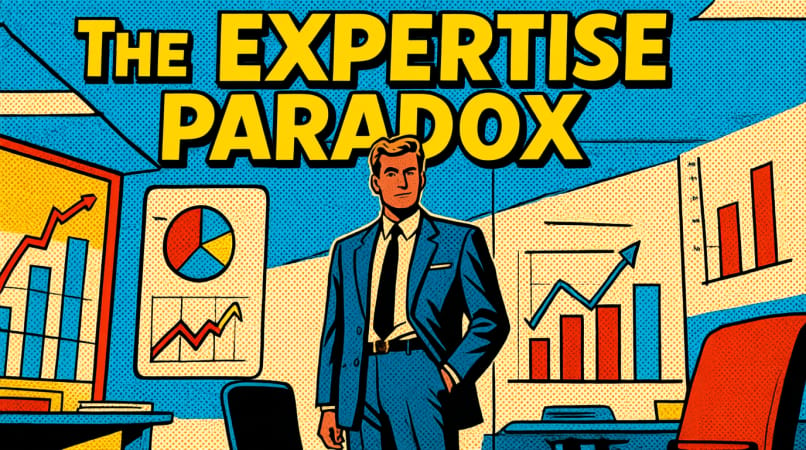- High-Stakes Human Skills
- Posts
- The Expertise Paradox
The Expertise Paradox
Why Broad Knowledge Hurts and Deep Specialization Wins

Being good at everything makes you invisible. Most professionals build résumés packed with diverse skills, thinking versatility equals security, but they create their own career ceiling. Specialists slice through market noise while generalists fight commodity battles where price becomes the only differentiator. The market doesn't pay for broad knowledge, it pays for focused expertise.
The Generalist Illusion: Why "Well-Rounded" Creates Career Quicksand
The corporate world sold us a lie: that being the Swiss Army knife employee guarantees job security. Companies love versatile workers who can "wear many hats" because they get multiple skill sets for one salary. But while you're becoming increasingly useful to your current employer, you're becoming less valuable to everyone else.
Data from freelance platforms reveals the brutal reality: general "business consultants" average $50-150/hour, while specialized consultants in the same industries command $200-500/hour for focused expertise. The generalist competes with thousands of similar profiles. The specialist owns a category.
The generalist illusion creates two career killers:
Commodity Competition: When you do everything, you compete with everyone. Your differentiation becomes your price, not your value. Hiring managers scroll past "experienced project manager with diverse skills" but stop at "SaaS customer retention specialist."
Memory Fade: People remember specialists, not generalists. When someone needs help with a specific challenge, they think "call the retention person" not "call the person who does retention plus fifteen other things."
The security of versatility becomes the prison of commoditization.
Here's the counterintuitive reality that separates high earners from everyone else: owning 1% of a specific market generates more wealth than fighting for 50% of a general market. The math is simple, but the psychology is complex.
When someone has a specific problem, they don't want a generalist who "also does" their thing. They want the person who lives and breathes their exact challenge. This principle works across every profession:
Marketing: Facebook ads specialists command $150-300/hour while "digital marketing experts" fight for $75-150/hour projects
Law: Employment attorneys charge premium rates while general practice lawyers compete on price
Consulting: Supply chain optimization consultants outprice "business strategy" consultants by 40-60%
The specialist's advantage compounds through two psychological triggers:
Perceived Expertise: People assume depth of knowledge based on focus of practice. The narrower your stated expertise, the deeper others assume your knowledge.
Risk Reduction: Hiring feels safer when the person has solved your exact problem before. Specialists reduce client anxiety about outcomes.
The market pays for confidence in outcomes, not breadth of knowledge.
Reply